
Typical result of attempts to loose belly fat can be described in two words - "it failed." People do all sorts of things that they heard or "know" are helpful. Countless crunches, no-calories-a-day diets, fat burners, cardio exercises where is the problem in that when there are no results?
Obviously, problem is being approached from the wrong side. Let us make is a twist in this plot and get some results.
You will be pressed hard if you want results, and you will be the one who is doing the pressing. It is vital to stay motivated. Giving up or slacking is all too easy. Best way to keep motivation is to be able to see results. Measure your waist, take pictures in regular time intervals (side pictures are good at showing change), measure body fat. Everything that matters is that there are signs of progress. It does not have to be rapid. As long as there is a positive trend, all is well. And do not think of how you will begin. Begin now.
Dealing with myths
Enough with those crunches. They make your abdominal muscles slightly stronger and slightly larger, but there is still fat over them and there is no diet and no exercise that can target the desired area covered with fat, belly or elsewhere. Six-packs are made in the kitchen, not in the gym. It is also neither necessary nor desirable to starve yourself; actually, it is a capital nutritional mistake.
You can eat healthy and eat plenty and no fat will stick to you. It is also not bad, but good to eat more fat. Constant intake of healthy fat (such as fish oil or olive oil) will actually cause body to store less new fat and will help to burn already present fat away.
Facing the facts
Getting stronger is the way to go. Exercising all muscles will make them stronger, prevent muscle loss and boost metabolism. Squats and dead lifts are not a bad choice for this. Regular exercise also forms discipline of body and mind, helpful in sticking to the diet, or to altered nutritional habits. Eating healthy is important. Eat whole and unprocessed foods. Do cardio exercises.
Cuisine do's and dont's
Eat small meals every three hours.Cut down on the alcohol. An occasional drink or two (say, on weekend) is OK, though.Reduce carbohydrate intake. Carbohydrates are needed, but all excess gets transformed into fat. Eat carbohydrates only after workout and in a moderate quantity.Eat more protein. It is inefficient to process, which means it is calorie-expensive; you burn off more calories than you gain.


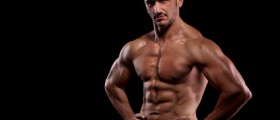
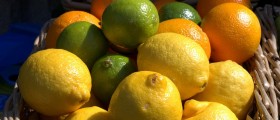

_f_280x120.jpg)

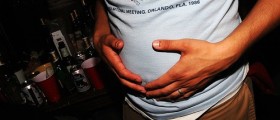
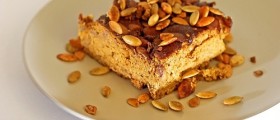
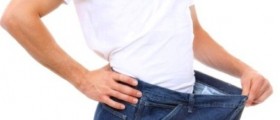
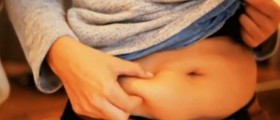
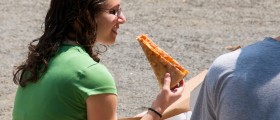
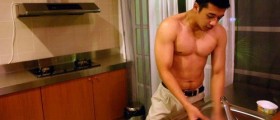
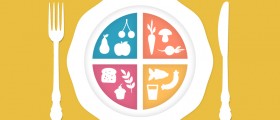
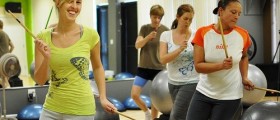

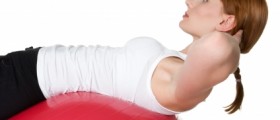
Your thoughts on this
Loading...